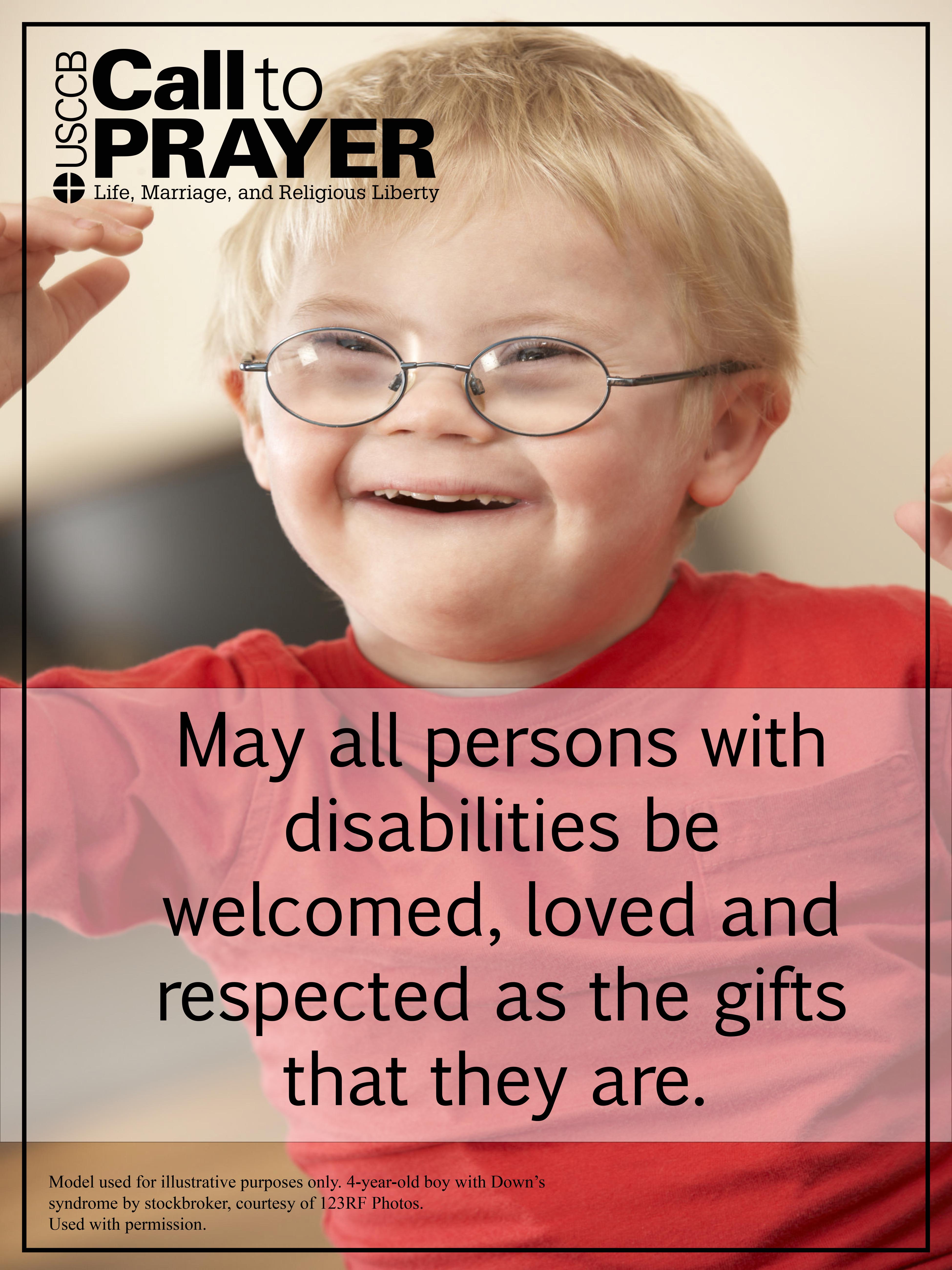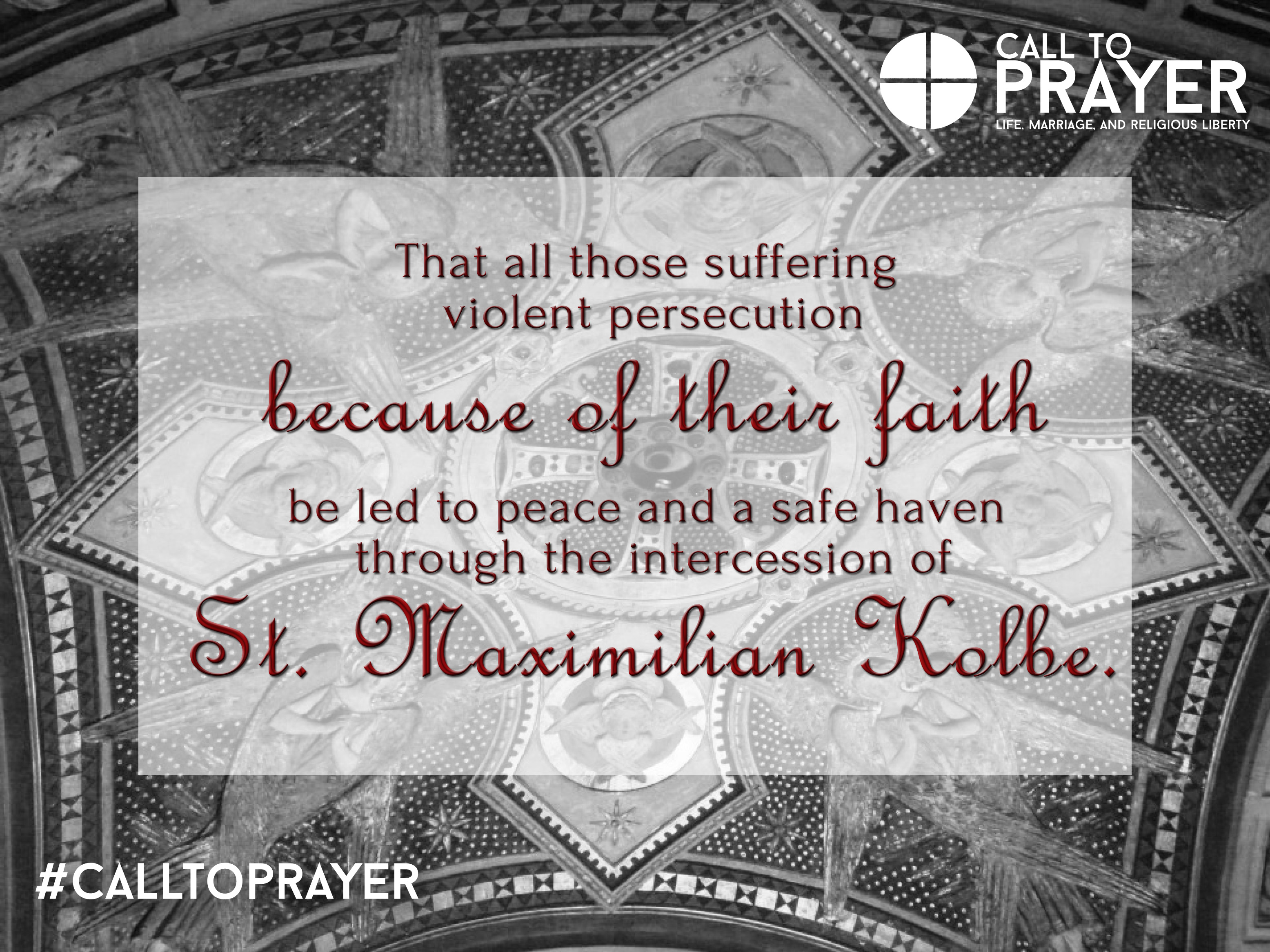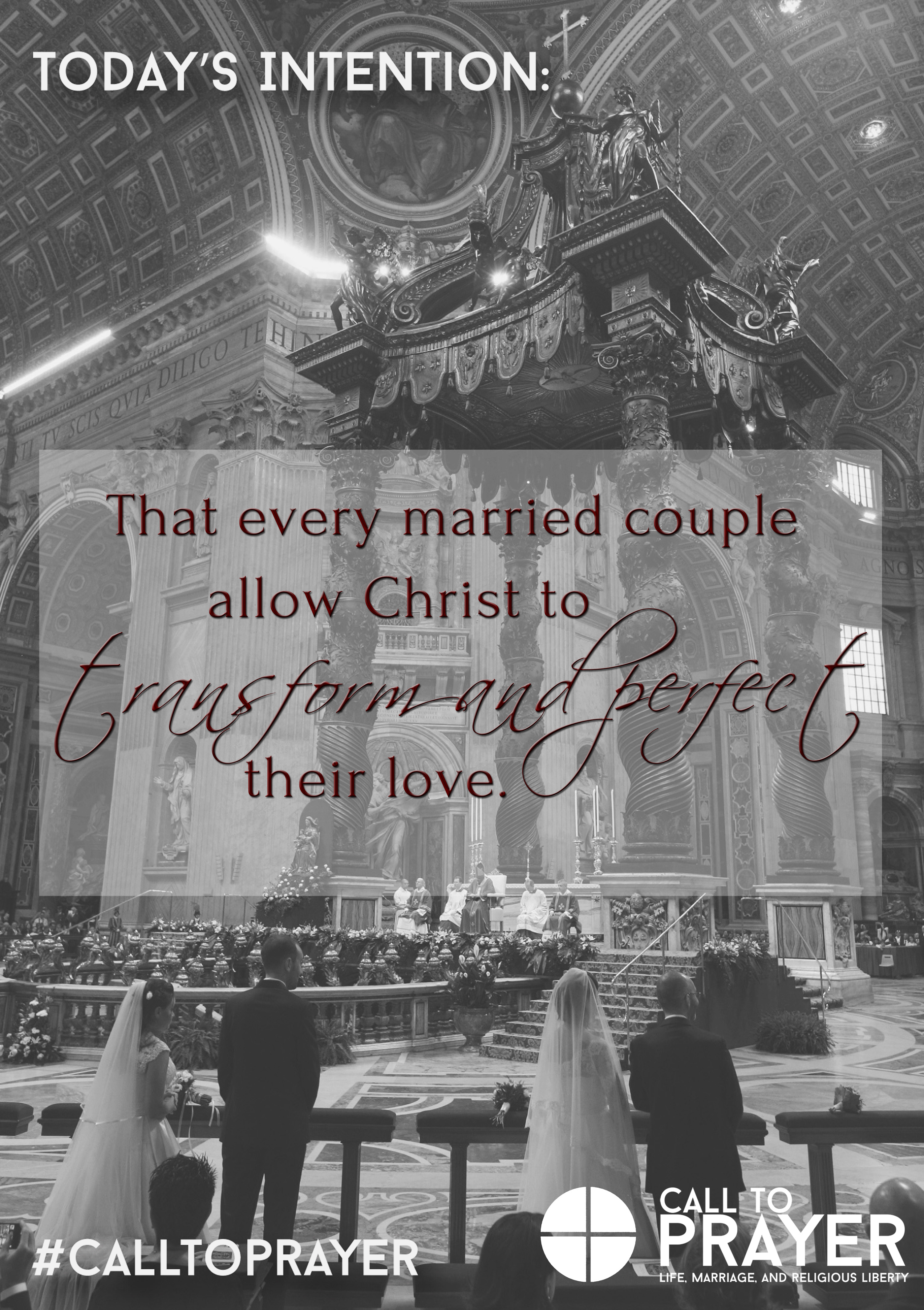The Dignity of Persons and Marriage
 Archbishop Sample from Portland, Oregon, reflected recently on the famous words of Pope Francis, “Who am I to judge?” in light of its context. These words are usually taken out-of-context to imply that the Holy Father sees nothing wrong with sexual acts between two persons of the same sex. Instead, “These words of Pope Francis were delivered in response to a very specific question about a particular individual who was accused of inappropriate homosexual behavior in the past.”
Archbishop Sample from Portland, Oregon, reflected recently on the famous words of Pope Francis, “Who am I to judge?” in light of its context. These words are usually taken out-of-context to imply that the Holy Father sees nothing wrong with sexual acts between two persons of the same sex. Instead, “These words of Pope Francis were delivered in response to a very specific question about a particular individual who was accused of inappropriate homosexual behavior in the past.”
Bishop Sample included the pope’s whole quote: “I see that many times in the Church people search for ‘sins from youth’, for example, and then publish them. They are not crimes, right? No, sins. But if a person, whether it be a lay person, a priest or a religious sister, commits a sin and then converts, the Lord forgives, and when the Lord forgives, the Lord forgets and this is very important for our lives. When we confess our sins and we truly say, ‘I have sinned in this’, the Lord forgets, and so we have no right not to forget, because otherwise we would run the risk of the Lord not forgetting our sins. That is a danger. This is important: a theology of sin…If someone is gay and is searching for the Lord and has good will, then who am I to judge him?… The problem is not having this tendency, no, we must be brothers and sisters to one another…”
Indeed, as Bishop Sample points out, Pope Francis is bringing out what the Catholic Church has always taught: that our God is a God of mercy. He then goes on to highlight some of Pope Francis’s other words which show that he is certainly not an advocate for so-called same-sex “marriage.”
Read the full text here.
Archive
Welcoming and Accompanying
 Recently, the Archdiocese of Detroit, the apostolate Courage, and Sacred Heart Major Seminary (particularly Dr. Janet Smith) organized a conference entitled, “Welcoming and Accompanying Our Brothers and Sisters with Same-Sex Attraction.” There were close to thirty speakers and four hundred participants with the same goal of meeting the pastoral needs of persons who experience this attraction in their lives.
Recently, the Archdiocese of Detroit, the apostolate Courage, and Sacred Heart Major Seminary (particularly Dr. Janet Smith) organized a conference entitled, “Welcoming and Accompanying Our Brothers and Sisters with Same-Sex Attraction.” There were close to thirty speakers and four hundred participants with the same goal of meeting the pastoral needs of persons who experience this attraction in their lives.
Archbishop Vigneron gave the closing homily for the conference, focusing on the various ministers present (ordained or lay) and their calling. He drew a parallel with Moses leading the people out of slavery in Egypt, saying that, “We have all, to some degree, depending on our state of life, received the baton from the new Moses, Jesus Christ” and reminded the participants that, “There’s a lot of tough stuff between Egypt and Jerusalem, not least leaving behind the old creation, the old self, and becoming a new creation.” Archbishop Vigneron pointed out that the Israelites often chafed against Moses because of the hardships of the journey, but, “To have high aspirations for people — that’s love. To be willing to accompany them on the passage to paradise, to the New Jerusalem — that’s love.”
The archbishop noted that Christ, “made the victory available to us. He is the last word and the full word, about happiness, the way, the truth, and the life.” Ministers are not perfect; it’s okay to stumble sometimes in the effort to help others. “Very likely as we accompany our brothers and sisters there will be stumbling. But stumbling is not a tragic failure when one is accompanying a brother or sister to the promised land. Stumbling becomes by the power of Christ a point for setting out anew with even greater confidence to lay hold of the victory that is inevitable.”
Finally, Archbishop Vigneron ended with a challenge and hope: “People think we’re old fashioned. We’re not. We’re subversive. We’re undermining an established order. Not for its own sake. Not just to be recalcitrant. But because of what God has asked us to do. We do it in love, we do it with patience, we do it in the power of the Holy Spirit. I praise and thank God that the Holy Spirit is abroad in our time and in our place.”
Read the full text at the diocesan website.
Archive
Call to Prayer: August 21, 2015
Archive
WMOF Catechesis Chapter 10: Choosing Life
World Meeting of Families Catechesis Series
The USCCB is excited about the World Meeting of Families (WMOF) being held in Philadelphia in September 2015. We are presenting a series of short articles focused on the WMOF Catechesis Love is our Mission: The Family Fully Alive and its implications for our daily lives. We will follow the timing suggested by the Archdiocese of Philadelphia by exploring one theme each month leading up to the World Meeting.
Chapter Ten: Choosing Life
Dr. Theresa Notare
Secretariat for Laity, Marriage, Family Life and Youth
Happiness in life requires courage and work. Happiness comes at a price. Want to play the guitar like a rock star? You will have to take music lessons and practice for hours daily. Want to have a strong, lean body? You will have to eat healthy food and exercise regularly. The list is endless. Hard work and sacrifice are a prerequisite to true, mature happiness.
As people of faith, we know that happiness arises from living a life that is in harmony with God’s will and leads us to fulfill our purpose. Chapter Ten of the catechism for the World Meeting of Families highlights this when it says that: “God made us for a reason… to love as He does” (no. 189). When we “understand that love is our mission,” this truth will “shape many other areas of life” (Ibid.). This can be clearly seen in marriage and family which, when founded on Christ, is a school of love.[1]
The vows in a Catholic marriage speak of the self-gift that the husband and wife make to each other in Christ. This requires “dying to self” as the two put aside “I” to become “we.” Married love, including its sexual expression, is holy. When lived in accord with God’s plan, conjugal love should “reverence God’s vision of human sexuality.”[2] This requires that the couple trust in God’s plan for their marriage, including whether and/or when they are able to have children. It may also ask for courage since Catholic couples will have to reject contraception which does harm to God’s design.
Many married Catholics do not realize the deep happiness that they can have in their marriages when God is at the center of everything. They can express God’s love for one another while they also honor His design, including their sexual lives. Sexual intercourse, as willed by God, is a holy time for husband and wife. It fortifies their union and is the worthy place for receiving new life. Honoring God’s will does not mean that couples can’t regulate the number of children in their families. When they need to postpone or avoid pregnancy, they may continue to honor God’s design by practicing one of the methods of Natural Family Planning (NFP).
NFP methods respect God’s gift of fertility by learning about it in a thoughtful way. No drugs or devices are introduced into the conjugal act; rather, the bodies of both man and woman are fully respected in their life-giving potential, and “listened” to. If a couple needs to avoid a pregnancy they refrain from sex when they are fertile. When they realize that God may be calling them to have a child, because of their knowledge of NFP they would also know the best time to attempt a pregnancy. This, of course, takes study
and practice (most NFP methods require charting the signs of fertility). All NFP methods also require self-discipline since periodic sexual abstinence is the NFP means to avoid pregnancy. This can be very difficult, but it is doable with the help of grace and the habit of self-discipline which is common to all virtues.
When couples persevere in learning and using NFP, they reap many benefits. All NFP methods are effective for both attempting to achieve or avoid pregnancy. They are also good for the body since no devices or drugs are used. In fact, NFP methods are the “organic” way to live with human fertility—they do not pollute the environment. Most importantly, NFP methods teach married couples to understand their bodies and to communicate with each other about their fertility and their relationship. These conversations can foster deeper couple communication that can improve their relationships. NFP research confirms this benefit showing that NFP couples feel respected by their spouses.[3] NFP helps married couples commit to real happiness—the deep happiness of living life according to God’s plan!
[1] See the Catechism of the Catholic Church, no. 1657.
[2] Committee for Pro-Life Activities, United States Conference of Catholic Bishops, “Human Sexuality from God’s Perspective, Humanae vitae 25 Years Later,” (1993); available at: http://www.usccb.org/issues-and-action/marriage-and-family/natural-family-planning/catholic-teaching/upload/Human-Sexuality-from-God-s-Perspective-Humanae-Vitae-25-Years-Later.pdf.
[3] L. VandeVusse, L. Hanson, R. J. Fehring, A. Newman, J. Fox, “Couples’ views of the effects of natural family planning on marital dynamics,” Journal of Nursing Scholarship 35, no. 2 (2003):171-176.
Archive
Call to Prayer: August 14, 2015
Archive
Call to Prayer: August 7, 2015
In light of the Feast of the Transfiguration on August 6th…


